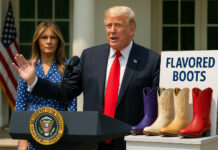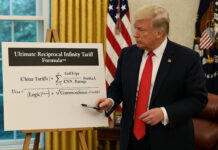Palo Alto, CA — A 2-year study conducted by the Palo Alto, CA-based Rundex Family Foundation found that the popular potato and wheat-based snack food Pringles is Earth’s most popular food. The study, which included over 18,000 participants from over 47 countries, was commissioned by owner Kellogg’s brands to confirm what their internal marketing data has already demonstrated.
Pringles is an American brand of potato and wheat-based stackable snack chips owned by Kellogg’s. Originally marketed as “Pringle’s Newfangled Potato Chips,” Pringles are sold in over 140 countries.
Although Lay’s brand snacks hold the largest market share with its diversified line of “lifestyle foods,” Pringles is Earth’s single most popular food. Pringles has 42% potato content in many countries and is not considered potato chips or ‘crisps.’ In Germany, they’re not even considered food.
The iconic and easily recognizable snack food has been an international hit since its introduction in 1967. German Chancellor Angela Merkel was munching on a can of Paprika-flavored Pringles at the Paris Climate Change and Refugee Conference.
“The Chancellor has a well-known love of Pringles,” said Merkel spokeswoman Beth Schönbright, speaking about her fondness for the crispy snack. “Whenever she travels, she brings many cans with her.”
Rundex says it conducted the study over the past year with a budget of over 1.2 million dollars.
The Data Doesn’t Lie
“Well, the data doesn’t lie,” said Rundex lead researcher Robert Colvin, speaking from his Mountain View, CA, home office earlier this week. “I mean, this data is pretty accurate. This was the first study where we’ve partnered with IBM and the Artificial Intelligence Watson Division. They help us focus our ‘big data’ efforts. But I gotta tell you, Watson came up with some weird correlations about Pringles consumption.”
According to Mr. Colvin, there was a high correlation between Pringles consumption and their customers being rabid fans of Nicolas Cage films. Probably the most disturbing finding is that people who eat more than one can of Pringles per week have a 50% higher chance of getting strangled to death in their bed sheets, according to Rundex.
“Well, yeah, that last finding is suspicious,” continued Mr. Colvin. “Remember, these are correlations, not real causes. I like to think this is a glitch or an ‘easter egg’ in the research business put in there by some snarky IBM engineer. It seems ridiculous to stop eating Pringles because you’re afraid of being strangled to death while you sleep at night.”
Kellogg’s Brands didn’t return our calls requesting comment.






